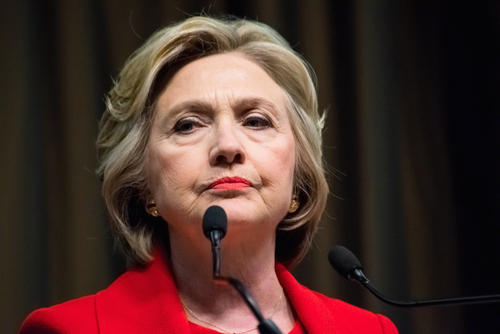Hillary Clinton recently reignited political discourse with her critique of Pete Hegseth’s alleged decision to pause U.S. Cyber Command operations against Russia. This decision, reportedly to facilitate diplomatic talks, has drawn scrutiny, especially given Clinton’s history with Russia. Critics have questioned the consistency of her stance considering past engagements such as the Uranium One deal and the symbolic “reset” button with Sergey Lavrov. How does this critique fit into the longstanding complexities of U.S.-Russia relations?
The Criticism and Diplomatic Dynamics
Hillary Clinton criticized Defense Secretary Pete Hegseth for allegedly pausing U.S. Cyber Command’s operations against Russia, interpreting it as undue deference to President Vladimir Putin. Her comments, resurfacing past diplomatic efforts, have sparked a discussion on the dynamics of U.S.-Russia relations. Previously, the United States has implemented similar pauses during diplomatic negotiations, a standard practice noted by The New York Times. This critique underscores the intricate balance between military strategy and diplomacy.
Hillary Clinton tries to attack Pete Hegseth, and boy does he come for her when she forgets to turn replies off https://t.co/ZnjMazL5sq
— Shelley Thornton (@GamecockShelley) March 3, 2025
Clinton’s comments have sparked debate, especially among conservatives who point to her past dealings with Russia. Critics highlight the hypocrisy and revisit controversial episodes like the Uranium One deal. The deal entailed the approval of Rosatom, a Russian state company, acquiring a Canadian firm with U.S. uranium assets during Clinton’s tenure as Secretary of State. These accusations aim to question her consistency on foreign policy stances.
Revisiting Historical Context
Defending Clinton’s critique, some argue it highlights a shift in diplomatic strategy. Critics, however, revisit significant episodes like Clinton’s symbolic “reset” attempt with then-Russian Foreign Minister Sergey Lavrov. Past actions, such as the Uranium One deal, remain contentious. Bill Clinton’s substantial fee from a Kremlin-linked bank and connections to donors linked to the agreement raise additional questions. The discussion reveals the influence of historical diplomacy on current political dialogue.
#BREAKING: Legendary #Maddow: "Defense Secretary Pete Hegseth orders a halt to U.S. cyber operations against Russia…even as Russia appears to have intensified its cyber operations against our allies in NATO and in Ukraine…"🙄 pic.twitter.com/JUM49eZIMf
— Emoluments Clause (@Emolclause) March 4, 2025
“Due to operational security concerns, we neither comment nor discuss cyber intelligence, plans, or operations. There is no greater priority to Secretary Hegseth than the safety of the Warfighter in all operations, to include the cyber domain.” – Pentagon official.
Reports indicate that Hegseth’s decision stood within broader Trump administration strategies to negotiate an end to the conflict in Ukraine. A Pentagon official emphasized the importance of operational security and declined to divulge specifics on cyber operations. Such strategies are common amid efforts to foster diplomatic resolutions, suggesting Hegseth’s pause was part of a more significant diplomatic attempt.
Current and Future Diplomatic Efforts
The intricate web of U.S.-Russia relations remains a focal point in foreign policy discussions. Secretary of State Marco Rubio emphasized the necessity of diplomacy in engaging with Russia, stating that antagonistic approaches hinder meaningful negotiations. Drawing on extensive experience, Rubio reinforced the need for constructive dialogue amid complex geopolitical landscapes.
Hillary Clinton’s critique of Pete Hegseth’s strategy serves as a reminder of past diplomatic decisions and their ongoing influence on foreign policy. The complex task of navigating U.S.-Russia relations demands a strategic balance between history and current priorities. As this situation unfolds, it remains essential to understand past dynamics to inform present strategies.

